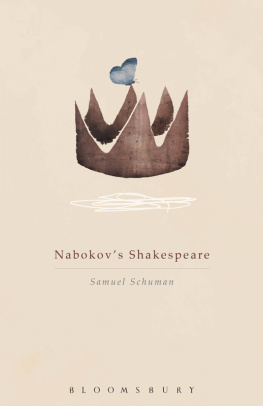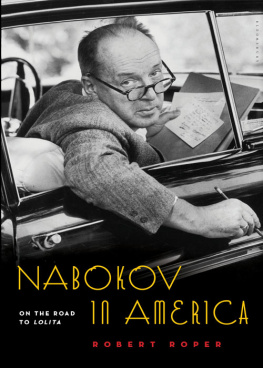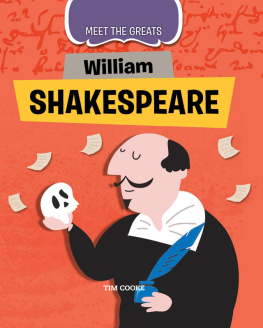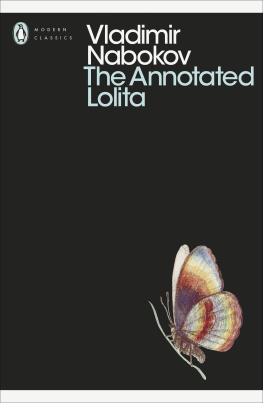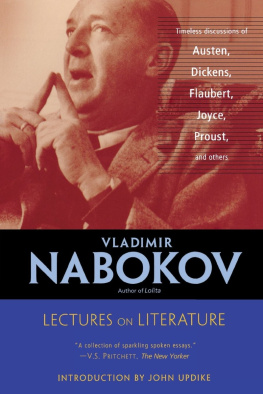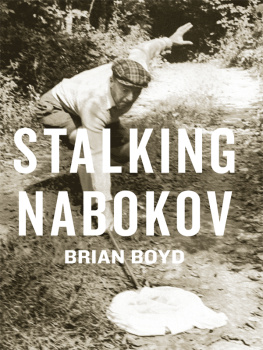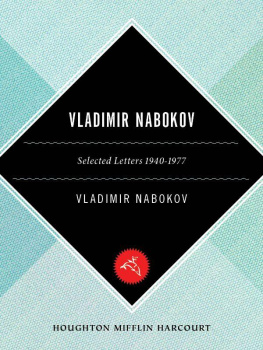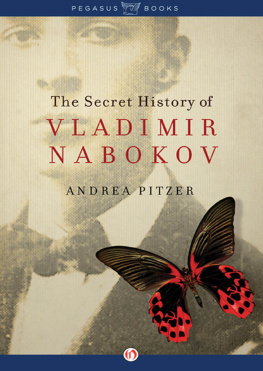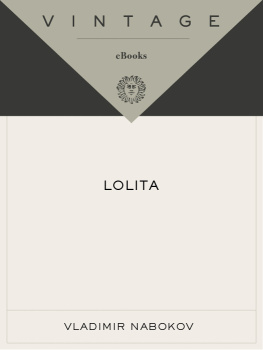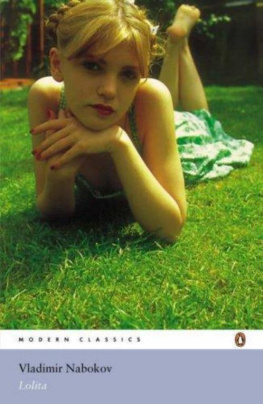Nabokovs Shakespeare
Nabokovs Shakespeare
Samuel Schuman
With a foreword by Brian Boyd

Brian Boyd
Vladimir Nabokov famously denied that he had been influenced by even the novelists he most admired: Dickens, Tolstoy, Flaubert, Proust, and Joyce. Yet he happily affirmed that Pushkins blood runs through the veins of modern Russian literature as inevitably as Shakespeares through those of English literature. (1962), he has his writer-heroes pay conscious homage to Pushkin and Shakespeare, respectively, even in the very titles of the works they are writing.
In the case of . Kinbote opens his commentary on the line:
Paraphrased, this evidently means: Let me look in Shakespeare for something I might use for a title. And the find is pale fire. But in which of the Bards works did our poet cull it? My readers must make their own research. All I have with me is a tiny vest pocket edition of in Zemblan! It certainly contains nothing that could be regarded as an equivalent of pale fire (if it had, my luck would have been a statistical monster).
English was not taught in Zembla before Mr. Campbells time. Conmal mastered it all by himself (mainly by learning a lexicon by heart)
, the comedy of the Zemblan mistranslation.
But before getting there, or even after, the very good reader of The Ghost, speaking to Hamlet, has to vanish when he notices the coming day:
The glowworm shows the matin to be near,
And gins to pale his uneffectual fire.
Adieu, adieu, adieu. Remember me.
If indeed we do remember these memorable lines, we may wonder whether they provide the answer to Shades puzzleuntil, or perhaps even after, we find the answer in
The example shows how Nabokov plays with and pays homage to the way Shakespeare pervades English literature at its best. In John Shades American college town, New Wye, there is even an avenue of all the trees mentioned by Shakespeare (the list of those that Kinbote can recall, poetry in itself, offers a wonderful challenge to our memories or an incitement to future reading). In Onhava, the capital of Zembla, a deposed kingin itself a very Shakespearean roleflees through a theater, in costume, and escapes via Coriolanus Lane and Timon Alley. Shakespeare, for Nabokov, simply saturates and illuminates the world of English literature.
This swift tour through some Shakespearean sites in indicates, apart from anything else, just how un-Shakespearean, how uniquely Nabokovian, Nabokov is, as well as how steeped in Shakespeare. No more for Nabokov than for John Shade does Shakespeares capacity to inspire other writers mean influence in a sense anything like imitation.
Shakespeare hardly needed naming, but Nabokov named poets particularly steeped in their Elizabethan precursor.
Nabokov was harsh on his own early verse. In his autobiography, , whose prose is the most poetic in all his books, he critiques his teenage self:
The hackneyed order of words (short verb or pronounlong adjectiveshort noun) engendered the hackneyed disorder of thought, and some such line as poeta gorestne gryoz, translatable and accented as the poets melancholy daydreams, led fatally to a rhyming line ending in roz (roses) or beryoz (birches) or groz (thunderstorms), so that certain emotions were connected with certain surroundings not by a free act of ones will but by the faded ribbon of tradition.
Nabokov, it seems to me, thought that young writers should read poetry not to imitate, not to ride in others slipstreams, but as a form of resistance training. Instead of exercising language with no resistance, the commonplace conjunctions of everyday speech or the clichswhether words, images, or rhymesof conventional verse, writers imaginations need to be stretched by words at maximum resistance to the norm. No one has ever resisted the norms of his languagethe natural words, the set idioms, the expected images, the grammatical groovesmore boldly and incessantly than Shakespeare. Any writer lucky enough to understand Shakespeare in the original should train in his or her mental gym in order to learn to dare in every phrase, to write by a free act of will rather than by following the faded ribbon of tradition.
this extreme individualist thinks, as Sam Schuman shows, that the collaborative nature of theater makes it inevitably an art of compromise, diluting the uniqueness of genius. For once in keeping with the prejudices of his age, Nabokov also undervalues Shakespeare as a storyteller and a master of dramatic structure.
But he gives full value to Shakespeare as a verbal artist, and to the power of his words, in all their uncompromising boldness, to inspire other imaginations to the full measure of their freedom. That is why for Nabokov translating was so valuable, so demanding, and so rich in ironies. He wanted to translate Hamlet himself, and published versions of favorite passages in the early 1930s. He might have continued, had he not had so many new fictional ideas of his own to develop in these particularly fertile years. Had he not managed to flee Russia, he might well have avoided the risk that his originality and independence of mind would have posed in the Soviet Union by devoting himself to translating Shakespeare. After switching to English, he shows in the character of the translator Ember in his novel (1947) just how well he could render into Russian the most demanding and inimitably Shakespearean lines, like this sentence from Hamlet at his most dizzily exuberant, after the play within the play puts Claudius into panic:
Would not this, sir, and a forest of feathersif the rest of my fortunes turn Turk with mewith two provincial roses on my razed shoes, get me a fellowship in a cry of players, sir?
No wonder Nabokov thought little of Boris Pasternaks efforts, much acclaimed in the Soviet Union. Interviewing him in the 1960s, Penelope Gilliatt reports Nabokovs spontaneous judgment on Pasternak:
As a translator of Shakespeare he is very poor, He is considered great only by people who dont know Russian. An example. His wife helped him to remember a line of a Pasternak translation. What he has turned it into in Russian is this: all covered with grease and keeps wiping the pig-iron. You see. It is ridiculous. What would be the original?
Greasy Joan doth keel the pot? [from Loves Labours Lost]
Yes. Keeps wiping the pig-iron!
When Nabokov fled Europe in 1940 for America, he began to translate Pushkin into English, and in an essay on
In the midst of his years of library research in translating and annotating Eugene Onegin, Nabokov has his hero Pnin, a fine scholar in Russian, with excellent French but insurmountably awkward English, try to place a sudden memory echo. Pnin sits in his college library working on Russian folklore, on pagan games in which
peasant maidens would make wreaths of buttercups and frog orchises; then, singing snatches of ancient love chants, they hung these garlands on riverside willows; and on Whitsunday the wreaths were shaken down into the river, where, unwinding, they floated like so many serpents while the maidens floated and chanted among them.
He cannot immediately locate the echoalthough the good English reader will have the pleasure of doing so alreadybut succeeds a little later:
pocketed his index card and, while doing so, recalled without any prompting what he had not been able to recall a while ago:
plla i pela, pela i plla
she floated and she sang, she sang and floated
Of course! Ophelias death!

